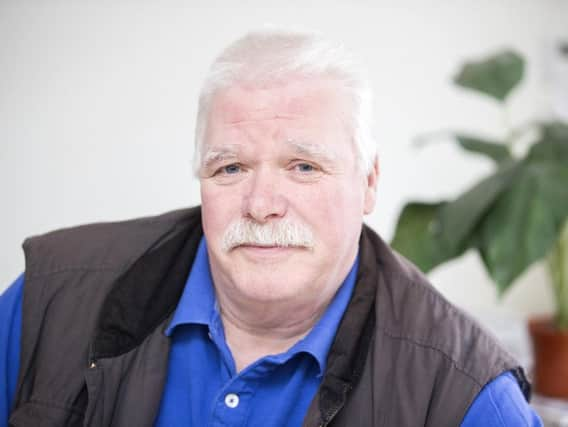Chair of Northampton Federation of Residents Associations says 36 groups want more beat bobbies


This news comes to light after the Far Cotton residents' association earlier on this year called for more officers to patrol the streets, where they sleep, to act as a deterrent following a spate of 35 thefts from motor vehicles and 19 burglaries, in meeting minutes brought to the Chronicle & Echo's attention this week.
Now the chair of Northampton Federation of Residents Associations, Arthur Newbury, who was appointed in December last year, said he criticises Northamptonshire Police for low numbers of beat bobbies and the lack of rapport his community has with PCSOs after jobs have been axed.
Advertisement
Hide AdAdvertisement
Hide AdUpon asking whether losing four PSCOs in Kingsthorpe has taken a toll on his community, he said: "Massively because lots of petty crime is going on like vandalism, and you can’t get the response because there are not the feet on the ground."
He believes the attitudes of offenders will only be changed in poorer areas like Blackthorn and St Davids - where is he has acted as the chairman for the resident's association for five years - if PCSOs can build up a good rapport through good community work.
Graham Walker (Con, Delapre & Briar Hill) said: "As the chair of Far Cotton Residents' Association and ward councillor, I have no confidence in the police.
"I do understand that they have had funding cuts. The issues I have is no local bobbies, and unless there is murder on the streets, you will not see a police officer."
Advertisement
Hide AdAdvertisement
Hide AdIn February this year, Home Office police workforce figures revealed our county force has 1,187.75 full-time equivalent officers (FTE) - down from 1,267.7 in 2013. The number of FTE neighbourhood officers dropped from 309.43 in 2016 to 145.42 in 2017, having risen from 123.86 the year before.
But Chris Hillery Head of Local Policing said the force's new way of policing will help engagement with the community: “Northamptonshire Police’s primary purpose has always been to protect people from harm and despite the challenges we face, we remain absolutely committed to doing that.
“Before the introduction of our current policing model, neighbourhood police officers would spend a large proportion of their time deployed to response incidents or being tasked to work outside of their geographic communities. This meant that they were unable to effectively identify and problem-solve community issues. “This changed when our new policing model was introduced last October with neighbourhood police officers and PCSOs now entirely focused on working with partner agencies and the community to understand local issues and engage with the public in a more meaningful way."
Inspector Dave Rayfield - speaking at one residents' association meeting in Far Cotton - said he is now the only police inspector in Northampton’s neighbourhood policing team and has a team of just 14 people patrolling the town.
Advertisement
Hide AdAdvertisement
Hide AdIn 2012, the number of officers and PCSOs per 1,000 people in the county was 0.53. In 2017, it was 0.31 - ranking Northamptonshire at 35th out of 45 forces analysed for the ratio.
Nationally, the number of police community support officers in England and Wales has dropped from 14,393 to 10,205.
FTE officers and PCSOs in Northamptonshire by year:
2017: 1187.75
2016: 1214
2015: 1229
2014: 1238.98
2013: 1267.7
2012: 1234.18
Chris Hillery added: “Our police officers, PCSOs and specials all work extremely hard to protect their local communities. However, these are not the only resources available for deployment and incident attendance. The force maintains a 24/7 response function, detectives across a number of investigative departments, proactive officers along with support from EMOpSS.
“Neighbourhood resources have been profiled against high harm areas, which has resulted, in some cases, officers and PCSOs moving wards. This is to ensure effective use of resources who work with partners to reduce the harm and crime. Furthermore, the OPCC and force have developed a sponsored PCSO programme, where local organisations such as parish councils and business districts can cover the cost of a PCSO.”